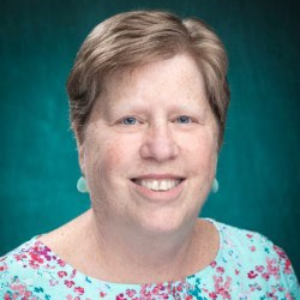Title : Perceptions of the connected online classroom among graduate nurse educators
Abstract:
Background: While traditional, educator-centered nursing pedagogies have served their purpose for many years, the shift towards student-centered learning is anticipated to better align with the needs of today’s learners. A connected classroom fosters an environment where educators and students can actively engage with the content and each other. Interactivity and active learning are pivotal in such settings, enabling collaboration and knowledge exchange. Through diverse active learning teaching approaches, educators can collaboratively craft the learning experience with students, thereby facilitating the sharing of experiences and enhancing learning outcomes (Singh et al., 2022).
Aims: The study aimed to explore graduate nursing students’ perceptions of online learning experiences through a descriptive qualitative study design. Additionally, it sought to examine how faculty and digital technology contribute to enhancing their online learning journey.
Methods: The sample comprised graduate nursing students from four sections of an asynchronous elective nurse educator course, spanning fall 2023 and spring 2024. In the fifth week of the course, students were prompted to share their past online learning experiences, including positive and negative aspects, along with their reflections.Subsequently, students reviewed and commented on their classmates’ discussion posts. At the course’s conclusion, students were asked for consent to utilize their discussion contributions. Twenty-two students consented by completing a demographic survey, resulting in a response rate of 46.8%. A total 85 posts were generated by these 22 students, averaging 3.86 posts per participant. These 85 posts will undergo retrospective thematic analysis using NVivo 14 during the summer of 2024.
Results: Except for one male student, the participants were predominantly female (95.5%) and mostly White (86.4%), with a small representation of Black or African American (9.1%) and two or more races (4.5%), ranging in age from 27 to 55. On average, students reported having taken 16 online courses during their college and graduate school years, delivered primarily in fully online (77.3%) and hybrid (18.1%) formats, with one course utilizing Zoom (4.5%). These courses comprised a mix of graduate (54.5%), undergraduate (40.9%), and continuing education workshop (4.5%) offerings, covering a diverse range of subjects in both undergraduate and graduate non-nursing and nursing courses. Initially, 85 narratives were individually reviewed after extracting them from the course’s discussion posts. Seventeen students (77.3%) shared positive online experiences, while five reported negative ones (22.7%).
Conclusions: This initial analysis of student reflections echoes existing research, emphasizing key factors for successful online learning: technology’s facilitative role, teacher engagement, and active student participation. Employing evolving evidence-based pedagogical methods in the connected classroom is essential. Additionally, integrating technology into online education enhances accessibility and fosters stronger student connections (Schuler et al., 2021).
Audience Take Away:
- The audience will be able to compare the difference between educator-centered pedagogies and student- centered pedagogies in higher education.
- Educators will be presented with the lived experience of graduate students in student-centered classed.
- Educators can evaluate the perceptions of the “connected” classrooms and determine if this method might be a practical solution in their own teaching environments.
- Educators will have the opportunity to share their own experiences with connected classroom pedagogies, as well as positive or negative online teaching environments through participation in polling questions during the presentation itself.



